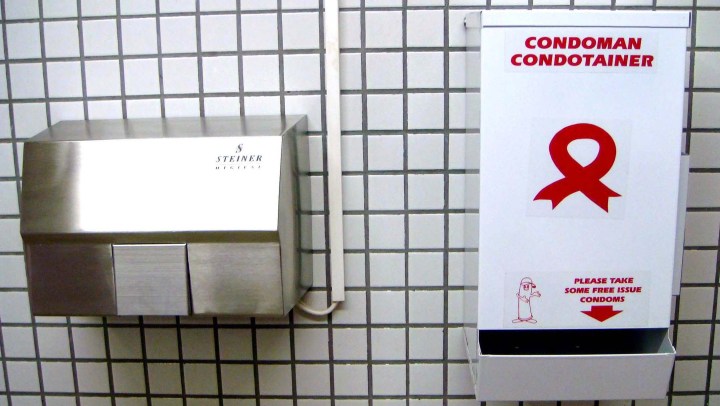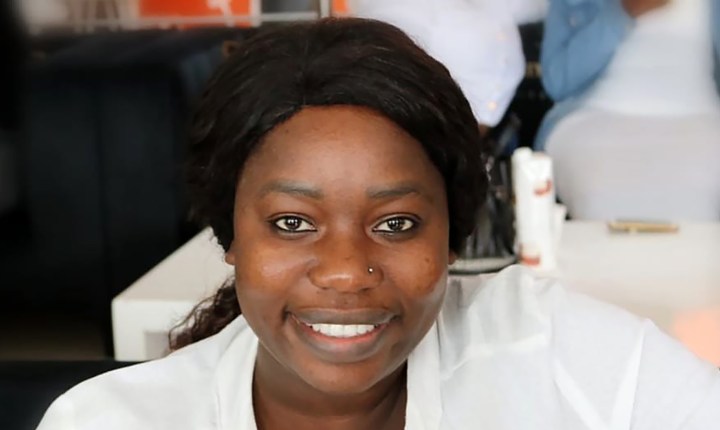HUMAN RIGHTS DAY
South Africa’s vulnerable populations and young people face discrimination in accessing contraception

Certain groups – including sex workers, transgender people and young individuals – face discrimination at local clinics and community healthcare centres when trying to access contraception. Many public healthcare facilities also experience contraceptives shortages and insufficient stock. Civil society participants at the Constitution Hill Human Rights Festival on Saturday stressed the importance of ensuring that all South Africans can access their preferred contraception.
Discrimination at clinics and community healthcare centres is a major barrier to human immunodeficiency virus (HIV) prevention and treatment for certain groups within South Africa – namely sex workers, transgender people, those who use drugs, and men who have sex with men.
Ndivhuwo Rambau, project officer for the Ritshidze Project, said it is a matter of concern that these individuals often struggle to attain basic prevention tools, such as male and female condoms, due to being questioned for taking them or even denied access completely.
“We have community stories… of sex workers telling us that they were stopped by nurses from taking condoms, and saying like: Why are you taking so many condoms? It’s not our fault that you’re in the line of work that you’re doing. You shouldn’t be doing that,” said Rambau.

A major barrier to HIV prevention and treatment services for certain populations is discrimination at public healthcare facilities, said Ndivhuwo Rambau of the Ritshidze Project, at the Constitution Hill Human Rights Festival on 19 March. (Photo: Supplied/Ndivhuwo Rambau)
Rambau believes steps should be taken to ensure that all people in the public sector can access their preferred form of contraception.
Rambau was speaking at a panel discussion on health, titled ‘Equal access: Strengthening the health care system to prevent crisis’, at the Constitution Hill Human Rights Festival in Johannesburg on Saturday. The discussion explored existing data on access to contraceptives and the implications of this data for rights and problem-solving within policy, law and advocacy.
The other panellists involved in the event were Sibongile Tshabalala, national chairperson of the Treatment Action Campaign, and Sikhonjiwe Masilela, director of maternal, child, women’s health and nutrition in the Gauteng Department of Health.
The Ritshidze Project was established in 2018 by people living with HIV, and activists wanting to hold the South Africa government and aid agencies accountable for the improvement of overall service delivery in health for HIV and tuberculosis, according to Rambau. The organisation monitors 400 clinics and community healthcare centres across 29 districts in eight provinces in the country.
The Ritshidze Project’s most recent data, collected between November 2021 and January 2022, found that people in “key populations” (KPs) – sex workers, transgender people, those who use drugs, and men who have sex with men – were at times being refused access to contraception based on their identities.
“We looked at access to contraception for KPs. We found that the percentage of respondents who wanted contraception but were unable to access it, according to the KPs, was quite alarming,” said Rambau.

A table showing the percentage of respondents of a Ritshidze Project survey who wanted contraception but were unable to access it at clinics or community healthcare centres. The table focuses on key populations – people who use drugs, sex workers and transgender people – and details the most frequently cited reasons for them being unable to access contraception. (Source: Ritshidze Project presentation from Constitution Hill Human Rights Festival, 19 March 2022.)
In a survey conducted by the organisation, they found that 19% of people who use drugs were unable to access contraception when they wanted it, of which 29% were denied access due to being a person who uses drugs. Among sex workers, 25% were unable to access contraception, of which 20% were told it was because they were sex workers.
Among the transgender respondents, 15% were unable to access contraception. Of these individuals, 21% were denied access due to being transgender.
“In South Africa, we have a lot of funding that is focusing on KPs, but there is a lot of discrimination and human rights violations in terms of KPs where they are supposed to access services on the ground,” said Tshabalala.
The barrier of being refused access to contraceptives not only stands in the way of members of KPs, but adolescent girls and young women as well, according to Rambau. In approaching young people about their experiences, Ritshidze found that staff in public health facilities are less friendly towards young people than older patients when it comes to contraception.
The organisation investigated which services are available to young people at facilities. Of staff members questioned, 63% indicated that there was access to contraception for young people. However, only 16% of young people questioned said they had access to contraception.
Masilela advocated for families and communities to play a role in addressing the lack of access to contraception among young people.
“Once the child… decides they are now sexually active, what is the role of the family in advocating for the health service close to them to provide the service?” he asked. “[Y]our clinic communities, your hospital communities, they’re supposed to represent you… sort of advocate that these services must be available, and no one must be left behind.”
Out of stock or short
Shortages and being out of stock of contraception and medication at public health facilities can cause disruption and confusion among patients, according to Rambau. Between November 2021 and January 2022, the Ritshidze Project found that around 9% of patients left facilities without the medication they needed.
In a survey of public health facilities, 26% of facility staff reported contraceptive shortages. Among patients however, 46% reported contraceptive shortages.
“When you do a comparison across provinces we are monitoring of the percentage of patients who reported a contraceptive shortage, the worst was in KwaZulu-Natal, which had… 196 reports of contraceptive shortages, followed by the North West, as well as Mpumalanga,” said Rambau.
Of the types of contraception available at facilities, the injection was most often in short supply, followed by the birth control pill, she continued. Shortages of the injection were reported by 76% of patients.
“Pregnancy tests also tend to be in short supply at facilities,” said Rambau, adding that this is problematic because young girls turned away due to a lack of pregnancy tests seldom come back for further assistance.
In light of current struggles and shortages, Tshabalala questioned where the country’s healthcare system would be in the next few years. She described public hospitals and clinics as being in “shambles”.
“It tells us that our healthcare system, as much as we’ve been saying… our healthcare system is falling apart… now it has collapsed and we have to pick up the pieces, and we are calling for government and everyone to come to the table,” said Tshabalala.
Masilela denied that the healthcare system had collapsed in Gauteng, saying that while not all activities or areas are “covered” simultaneously, the province is working to ensure things run properly. He further claimed that the migration of people from other countries and South African provinces to Gauteng is placing strain on the healthcare system.
“All these people will come to Gauteng and when they come to Gauteng, we can’t cater for all of them,” said Masilela. “As much as they are South Africans, their budget is sitting in their home provinces, where they come from.”
Tshabalala demanded plausible solutions and cooperation around the country’s healthcare problems.
“We are here for solutions. We want to work with the government to say, let us help with the solutions,” she said. “Let’s try other remedies. Let’s get around the table. Let’s go around and do the monitoring and address this issue.” DM/MC



















 Become an Insider
Become an Insider
Comments - Please login in order to comment.